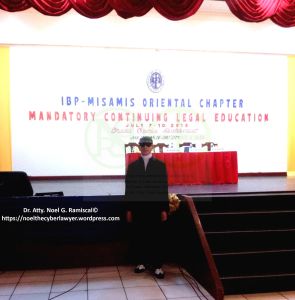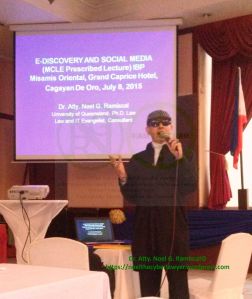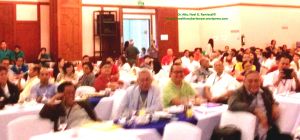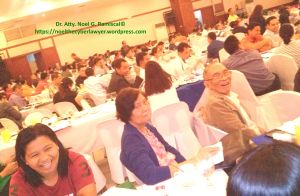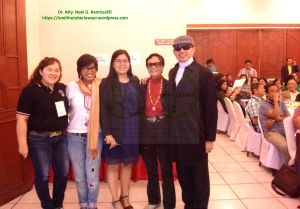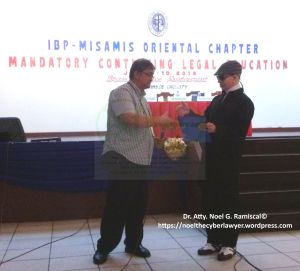Asian Business Legal Magazine and FTI Consulting early this year published a study on the subject of electronic discovery of evidence which they conducted as a result of their 2013 and 2014 surveys of a handful of lawyers and law firms in Asia.
The study purportedly covered not merely the legal, but the technical and cultural facets of e-discovery. It revealed that only “(s)ixty-five individuals from corporations and law firms completed an extensive online survey, while five e-discovery experts participated in phone interviews.” There was no data revealed as to which particular Asian countries these respondents came from. It was also stated that the “(r) espondents have collected data from 15 different Asian countries (plus the United States, Europe, Latin America and Africa). It may be worth noting that this list is not topped by one of the two Common Law countries (Hong Kong and Singapore), but China, with 60% of respondents having collected there.” As far as the Philippines goes, only 7% of the 70 respondents stated that they collected data from Philippine sources.
On its face, the number of respondents to the study might be deemed too small as to be truly representative of the realities, perspectives and experiences that lawyers and law firms in Asia undergo as the e-discovery processes are set in motion. Be that as it may, Dr. Atty. Noel G. Ramiscal’s reaction would focus on several important issues arising from the study, with respect to their particular import to the Philippines.
THE COSTS OF E-DISCOVERY
The study delved on the huge amount of electronic data that are involved per e-discovery project which pertains to a given case. For example, “(g)iven the huge increase in email correspondence, it is not unusual for each of the parties to be required to apply data storage and key word searches to more than 200,000 separate pieces of correspondence……Indeed, a recent Bingham Tokyo case had over 500,000 separate pieces of correspondence.” The study asked the respondents their estimates of the monetary value of e-discovery for multinational companies. 29% of the respondents declared they “do not know”, while some 2 to 3 % estimated the costs to be $2.5 Million – $5 Million, and the rest laid their estimates between less than $50,000 to $1 Million.
Dr. Ramiscal gave his first lecture on the costs of electronic discovery within the Philippine context way back in May 16, 2007 for the Financial Executives Institute of the Philippines (FINEX).

Dr. Atty. Noel G. Ramiscal receiving a plaque of appreciation from the FINEX
In his lecture entitled “Assessing the Costs and Legal Ramifications of E-Data to Your Business or Corporation” he gave specific examples of how much the discovery production costs of pertinent e-data in back-up tapes alone had set some parties back in the United States. For instance, in 2002, in Rowe Entertainment, Inc. v. William Morris Agency, Inc., the costs of e-data recovery was pegged at $9.75 million, while in Murphy Oil USA, Inc. v. Fluor Daniel, Inc., it was set at $6.2 million. These cases did not include the costs for the time of the lawyers and paralegals reviewing the data to determine which is relevant. He then gave an estimate of how much it would take to recover e-data covering thousands of emails spanning several years, using an e-discovery software with the help of an IT specialist at 2007 Philippine prices and context, for a medium sized non-multinational company.

Dr. Atty. Noel G. Ramiscal lecturing before the FINEX officers and members
He placed the conservative estimate of Php3 million, excluding attorney’s fees for the review of the documents for privilege or confidentiality and relevance.
The study highlighted the fact that almost one third of the respondents did not know how to estimate the costs, without giving any reason why. In his FINEX lecture, and his succeeding Mandatory Continuing Legal Education (MCLE) lectures on this matter, Dr. Ramiscal delineated some of the complicated processes involved in the electronic discovery of e-data (e.g., litigation holds, preservation orders, etc.), made all the more uncertain because of the non-existent rules, then and now, from the Philippine Supreme Court that deal precisely with the legal and proper way of e-discovery. Such lack of proper rules and awareness of e-discovery techniques in the Philippines, that the Supreme Court has the duty to lay down, can certainly contribute to the lack of knowledge of Philippine lawyers as to the costs of e-discovery.
THE NON-FINANCIAL COSTS OF NOT COMPLYING WITH E-DISCOVERY
While the study stressed the fact that the scope of e-discovery is quite broad due to the prevalence of electronic evidence, what it did not dwell on is the non-financial consequences of failing to observe e-discovery procedures. This is an important lacuna in the study.
Aside from the monetary costs, Dr. Ramiscal in his FINEX Lecture and subsequent MCLE lectures had always emphasized the costs of losing one’s business and reputation arising from not observing e-discovery procedures like intentionally destroying electronic evidence pending an imminent litigation or violating an already established preservation order.

Dr. Atty. Noel G. Ramiscal during the Question & Answer portion of his FINEX lecture
A very clear example that he usually gives are the e-discovery infractions committed by the Arthur Andersen accounting firm with their Enron account which led to the dissolution of the firm. These are matters that many law firms, corporations, and courts in the Philippines may not even realize at this stage.
WHO BEARS THE COSTS OF E-DISCOVERY?
The study noted that a lot of e-discovery requests come from government regulators. This meant that the company under regulation is bound to comply, and implied that it will bear the costs of e-discovery.
But that is not the whole reality. When a contentious case arises before the court, for example an intellectual property case involving patents, it is expected that both parties will resort to e-discovery process. In some cases the extent of the requests may be unreasonably broad which, if followed, can lead to unnecessarily heavy financial costs. The American courts have established some sophisticated doctrines and guidelines to follow in cases like this, recognizing the fact that making one party bear the costs of e-discovery would in many cases be unfair. This is another matter that Dr. Ramiscal has continually explored in his lectures for the MCLE seminars he has been invited to by the UP IAJ and the Integrated Bar of the Philippines tackling electronic evidence and electronic discovery.
The study could have been more relevant had it tackled this very particular nitty gritty aspect of e-discovery that involves both clients and their lawyers.
TRANSBORDER DATA FLOW
Finally, the study underscored the challenges concerning privacy and transborder data flows to and from jurisdictions whose privacy laws may conflict with one another. This is a very important matter, and one that is demonstrably illustrated as far as the Philippines goes.
The Philippine Legislature has passed Republic Act 10173, entitled “AN ACT PROTECTING INDIVIDUAL PERSONAL INFORMATION IN INFORMATION AND COMMUNICATIONS SYSTEMS IN THE GOVERNMENT AND THE PRIVATE SECTOR, CREATING FOR THIS PURPOSE A NATIONAL PRIVACY COMMISSION, AND FOR OTHER PURPOSES” in 2012. Almost three years have passed but the Implementing Rules and Regulations (IRR) of this law had not been passed. The National Privacy Commission has not yet been operationalized. Meanwhile, issues confronting the data rights of Philippine citizens have arisen without any specific government directive or direction addressing these issues. In the same vein, Republic Act 10175, “AN ACT DEFINING CYBERCRIME, PROVIDING FOR THE PREVENTION, INVESTIGATION, SUPPRESSION AND THE IMPOSITION OF PENALTIES THEREFOR AND FOR OTHER PURPOSES” passed in 2012 also has no IRR. This law could complement or intersect with some of the provisions of Republic Act 10173. Under the Administrative law and jurisprudence of the Philippines, without the proper publication of the IRRs of these laws in the Official Gazette or newspaper of general circulation, and proper deposit of their copies with the Office of the National Administrative Register, these laws are not effective against any entity.
CONCLUSION
The Asian Business Legal Magazine and FTI study of e-discovery’s value for the Philippines lies in being an eye opener of some of the important issues concerning e-discovery which the key players in the Philippine government, including the Philippine Supreme Court, and the pertinent executive agencies must deal with. With the electronic initiatives of the Philippine Supreme Court under Chief Justice Sereno (who is a champion of IT-enabled courts), the matter concerning e-discovery of e-data deserves to be duly and timely addressed, especially since the establishment of Philippine Cybercrime courts under Republic Act 10175 had not yet been actualized due to the non-passage of the law’s IRR.
Cite: Dr. Atty. Noel G. Ramiscal, A PHILIPPINE LAWYER’S REACTION TO A 2015 E-DISCOVERY STUDY IN ASIA AND WHY THE PHILIPPINES HAS TO PLAY CATCH UP, (URL), (date of access)





